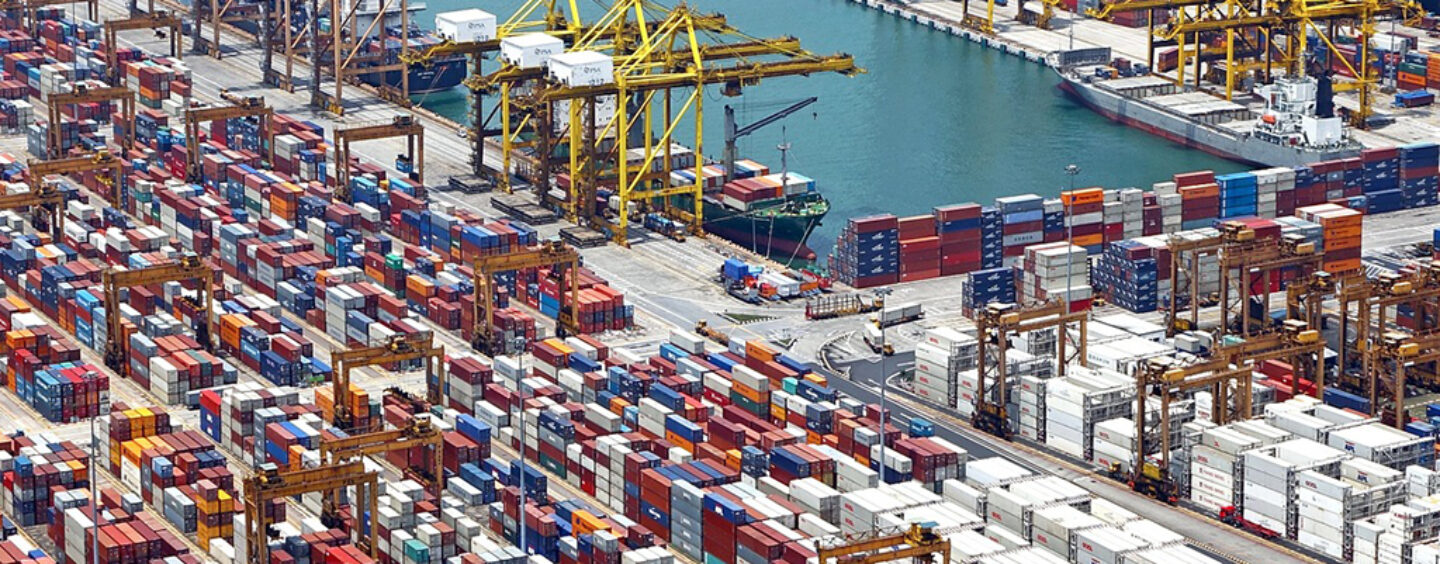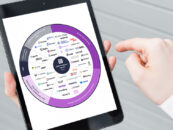Trade finance has become one of the key focus for blockchain technology use with the number of pilots and other trials dramatically increasing in 2017 and intensifying this year.

Image: Bitcoin, Pexels.com
Financial institutions such as HSBC, Standard Chartered, Societe Generale, Deutsche Bank, UBS, and even China’s central bank, among many others, are all looking to leverage blockchain to streamline international trade transactions and reduce risk in the US$16 trillion in global trade done annually.
Just last month, a new blockchain-based trade finance platform developed by HSBC, Standard Chartered and ten other banks, was launched in Hong Kong. HSBC said the platform, called eTrade Connect, is allowing the Asia-focused British lender to reduce the time it takes to approve trade loan applications to four hours, compared with the usual one-and-a-half days.
eTrade Connect is just one of the numerous trade finance blockchain platforms that have been developed in the past years by banking consortia. These have been teaming up to accelerate development and adoption of the technology in the field.
One example is we.trade, a trade finance blockchain application owned by nine banks. Belgian bank KBC was the project instigator and the original consortium comprised Rabobank, Deutsche Bank, HSBC, KBC, Natixis, Societe Generale and UniCredit. Later Nordea and Santander joined. More recently the consortium incorporated as a joint venture in Ireland.
Another example is komgo, a new company founded by fifteen of the world’s largest institutions, including banks, trading companies, an inspection company and an energy major, to develop a blockchain-powered open commodity trade finance platform. The institutions behind the new venture include ABN AMRO, BNP Paribas, Citi, Credit Agricole Group, Gunvor, ING, Koch Supply & Trading, Macquarie, Mercuria, MUFG Bank, Natixis, Rabobank, Shell, SGS and Societe Generale,
Meanwhile, Batavia is a global trade finance platform built on the IBM Blockchain Platform. It is being collaboratively developed by a consortium of five banks: UBS, Bank of Montreal (BMO), CaixaBank, Commerzbank and Erste Group, and IBM as equal member. The consortium aims to support the creation of multi-party, cross-border trading networks by establishing Batavia as an open ecosystem that can be accessed by organizations big and small around the world.
Still a long way to go
After years of development and testing, the first real-life transactions have finally passed over blockchain-powered systems, indicating that institutions are one step closer to their goal. Yet, there is still a long way to go before widespread commercial usage.
All these organizations that are working on blockchain-based platforms for trade finance must come together and agree on a uniform set of rules and standards under which these networks would operate. And reaching an agreement on any blockchain network group that satisfies so many stakeholders is not an easy process.
Banks expect that from the numerous platforms and initiatives that are currently being developed, only a few will eventually rise to success and reach commercial use. Hence, bankers are betting on multiple blockchain systems, with HSBC and Standard Chartered for instance, involved in at least four different trade finance platforms. They expect the most powerful systems to be able to connect with each other, while other platforms will eventually die off.
“The question is how we enable them to connect together seamlessly over time — and they will become increasingly interoperable,”Michael Vrontamitis, head of trade in Europe and the Americas at Standard Chartered told the Financial Times. “And there will be a few that survive.”
Blockchain for trade finance
Trade finance is a complex process in which banks facilitate international trade through the supply of letters of credit and other financing mechanism.
Trade finance involves various parties from exporters, importers, banks, truckers, shippers, custom agents and regulators, who all require checks and verifications at various points along the chain, and has traditionally been an intensely manual and paper-based process prone to delays and errors.
But blockchain promises to change that by enabling all parties to a trade finance transaction to share information securely. At each stage of the transaction, the relevant participants can update the blockchain, and that information is almost instantly available to all the parties to the trade.
Trade finance is set to gain immensely from blockchain due to the traceability, transparency and operational efficiency it offers. In particular, it could eliminate costly documentation delays, speed up settlement times and prevent funds being tied up for lengthy periods of time. It could also improve access to credit, as the transparency of blockchain transactions may encourage credit providers to look more favorably on trade borrowers.
According to a Blockchain Trade Finance report by Bain & Company and HSBC, blockchain technology could potentially increase global trade volumes by US$1.1 trillion by 2026, from the current base of US$16 trillion.
Featured image credit: Pixabay





